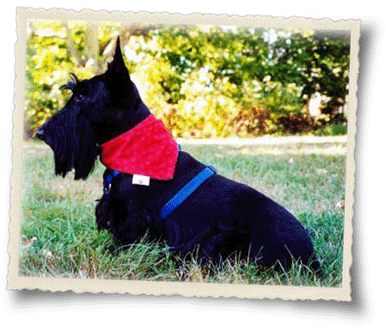
HOME
 YOUR HISTIO STORY
YOUR HISTIO STORY
I am looking for similarities
in all individual cases of
Histiocytic diseases.
I wonder if we all tell our
stories we might come up
with some commonality
between the specific
situations in which all of
our pets got this disease.
So please email me the
details and I'll put your
pets story on Shelley's
Histio Website
 UW HISTIO VERHAAL
UW HISTIO VERHAAL
Ik ben op zoek naar
overeenkomsten in alle
individuele gevallen van
Histiocytose.
Ik hoop dat wanneer wij
onze Histio verhalen
vertellen, wij overeen-
komsten ontdekken over
de manier waarop onze
huisdieren deze ziekte
hebben opgelopen.
Stuur mij de details en
ik zal het verhaal van uw
huisdier op de Histio
website van Shelley zetten.
 WARNING !
WARNING !
These stories are all
different. Individual
symptoms, situations
and circumstances
may vary and response to
therapy is not always the
same.
- Disclaimer -
 WAARSCHUWING !
WAARSCHUWING !
Deze verhalen zijn allemaal
verschillend. Individuele
symptomen, situaties en
omstandigheden kunnen
verschillen en de reactie
op therapie is niet altijd
hetzelfde.
- Disclaimer -
HISTIOCYTOSIS IN
OTHER LANGUAGES
German - Hund
Maligner Histiozytose
French - Chien
l'Histiocytose Maligne
Italian - Canis
Maligni Histiocytosis
Spanish - Perros
Histiocitosis Maligna
Dutch - Hond
Maligne Histiocytose
HOME
McDuff
Malignant Histiocytosis
Scottish
Terrier
Male
April 17, 1998 / October 13, 2004


Tonight, October 13, 2004, we lost our 6 1/2 year old McDuff to Malignant Histiocytosis. Duffy served as a Therapy Dog in a nursing home. A few times every week we took Duffy to the elderly residents (including my father) of Sunny Acres Nursing Home in Chelmsford, MA. He had a powerful therapeutic effect on so many people's lives even though he was small and short in stature. He bounced his way down the  facility's halls confidently with his head held high and his tail straight in the air, wagging non-stop. His face was sweet and his dark brown eyes could melt even the coldest of hearts. I recall one of our greatest experiences with Duffy involving a stroke victim. This resident rarely spoke and often sat with a blank look on her face. But when she saw Duffy walk by one day she actually attempted to interact with him and communicate. When the patient turned towards Duffy she was making a guttural sound and we looked. And the nurse said 'why don't you bring the dog down.' It was like she wanted to see him. And we brought the dog down and this big smile came over her face and it was like she started trying to talk and she got out that she had had a Scottish Terrier. And the nurses were shocked because they never got any expression and she didn't talk.
facility's halls confidently with his head held high and his tail straight in the air, wagging non-stop. His face was sweet and his dark brown eyes could melt even the coldest of hearts. I recall one of our greatest experiences with Duffy involving a stroke victim. This resident rarely spoke and often sat with a blank look on her face. But when she saw Duffy walk by one day she actually attempted to interact with him and communicate. When the patient turned towards Duffy she was making a guttural sound and we looked. And the nurse said 'why don't you bring the dog down.' It was like she wanted to see him. And we brought the dog down and this big smile came over her face and it was like she started trying to talk and she got out that she had had a Scottish Terrier. And the nurses were shocked because they never got any expression and she didn't talk.
Duff always slept in bed with us, spoiled dog, but 2 weeks before we took him to the vet, he started being fidgety at night. He also started drinking excess amounts of water about 1 week before we took him to the vet for the initial tests. He had been a bit lethargic but there were no other warning signs. We took him to our vet last Monday and they ran blood tests for tick disease. The tests came back negative. We went back on Friday to get more tests done. Until that morning his appetite was normal. At first the vet was going to put McDuff on an IV, but then they advised to take him to the Tufts Vet Hospital and teaching center in N.Grafton, MA. Due to the Columbus Day weekend here in Massachusetts the lab was closed. McDuff was failing fast. His liver and spleen had become enlarged making it difficult for him to walk. His spirits were good though, but he was jaundiced and not eating. He always chewed his Bouda bone for 6 minutes each night until he went to the Tufts facility. We brought it, he just wasn't interested. Highly unusual, as this was his favorite thing to do, other than sitting on the couch, by the fire, getting tummy rubs. Finally on Tuesday they did a needle biopsy and we got the results Wednesday afternoon. The diagnosis was devastating: Malignant Histiocytosis.
 We were told that we could put McDuff on steroids with which he might last another 2 weeks. We could also put him on Chemo and steroids so he could last up to 2 months. Both options are not curative, but only palliative and the side effects can be serious too. As we did not want him to suffer we went to see him last night for the last time. We took him out and sat with him for about an hour. He had lots of loves, treats, and a big drink of water. He went for a short walk and even did his business, a good boy to the end. We then took him in and held him while the doctor gave him the shot. He was our best buddy. We lost him after only 6 1/2 years, too short, but what a life he had.
We were told that we could put McDuff on steroids with which he might last another 2 weeks. We could also put him on Chemo and steroids so he could last up to 2 months. Both options are not curative, but only palliative and the side effects can be serious too. As we did not want him to suffer we went to see him last night for the last time. We took him out and sat with him for about an hour. He had lots of loves, treats, and a big drink of water. He went for a short walk and even did his business, a good boy to the end. We then took him in and held him while the doctor gave him the shot. He was our best buddy. We lost him after only 6 1/2 years, too short, but what a life he had.
Today, as we are trying to figure out what happened and why, we wrote McDuff's story to spread the word. We need to find a way to deal with this killer! We live in a condominium development and they had put a fall "treatment" on the lawn about 3 times per year. My guess is that this "stuff" is not pet or human friendly. We would try to keep him off the grass and wipe him down, but who knows.
We are still in shock. Duff was our proud champ. We will never forget him!
Bruce and Sue Robinson

